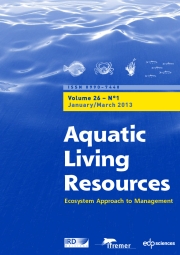Article contents
A historical perspective of biological studies in the ocean
Published online by Cambridge University Press: 15 April 1995
Abstract
A holistic perspective of the last 150 years of studies in ocean biology reveals two distinct scientific activities. The first involved scientists in many expeditions from the "Challenger" in the 1870s to the Indian Ocean Expedition in the 1960s. These studies ended with what Ray (1970) has called the "Marine Revolution". This was caused by the need for marine biologists to pay much more attention to practical problems of fisheries, pollution, undersea mining and in particular the biology of the 200-mile economic zone which was established by many maritime nations in the 1970s. The new biological science of the oceans moved from largely descriptive ecology into the field of dynamic processes, holistic models, ocean monitoring and networking of different national and international organizations. Further progress in the biological sciences is needed in these areas, particularly in determining the canying capacity of the seas and oceans and the ecological consequences of removing manne species of fish from the oceans as part of the annual industrial harvest. These problems are only likely to be solved by a consideration of the properties of entire ecosystems, which are often different, to that expected, from the sum of the determinate parts.
Keywords
- Type
- Research Article
- Information
- Copyright
- © IFREMER-Gauthier-Villars, 1995
- 1
- Cited by


